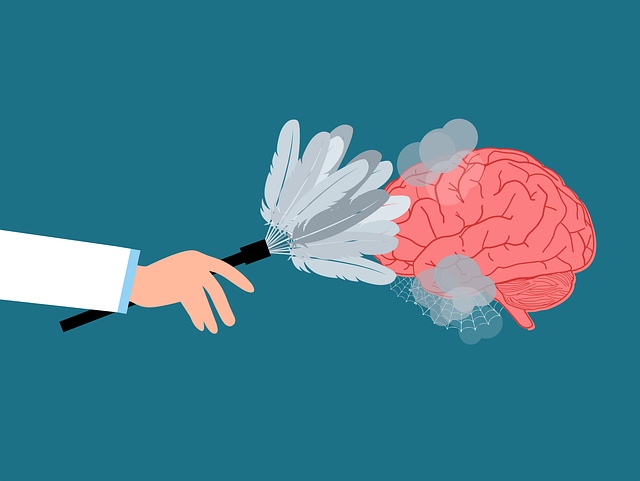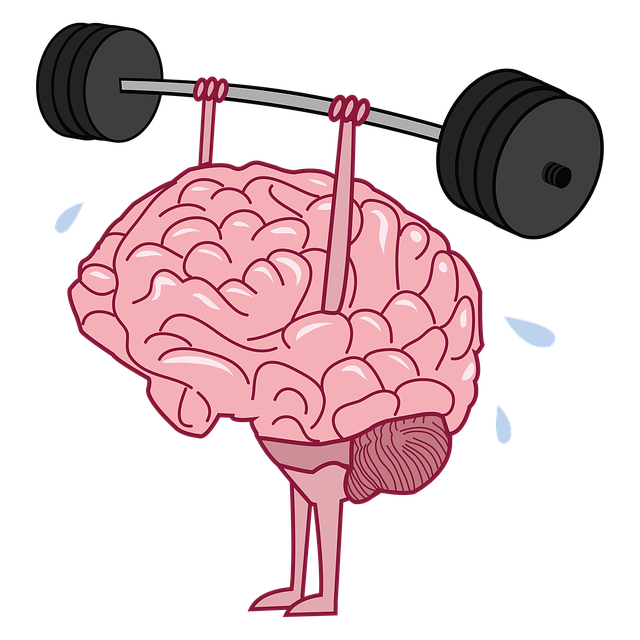Parker Couples Counseling Therapy prioritizes emotion regulation as a cornerstone for healthy relationships, teaching techniques to manage stress, avoid impulsive decisions, and enhance communication. This structured approach includes mindfulness, positive thinking, and conflict resolution skills, fostering emotional intelligence and mental well-being. By integrating daily practices like breathing exercises, journaling, and social connections, individuals can improve emotional resilience, reduce anxiety, depression, and PTSD symptoms, ultimately benefiting personal growth and broader mental health initiatives.
Emotion regulation is a vital skill for maintaining healthy relationships and overall well-being. In this article, we explore the significance of emotion regulation techniques, particularly within the context of couples therapy. We delve into how Parker Couples Counseling Therapy provides an effective framework to teach these strategies, enhancing communication and fostering deeper connections. Discover key components of successful emotion regulation, practical tips for daily application, and inspiring success stories highlighting the transformative power of learning to manage emotions together.
- Understanding Emotion Regulation: Why It Matters for Couples
- The Role of Parker Couples Counseling Therapy in Teaching These Techniques
- Key Components of Effective Emotion Regulation Strategies
- Practical Tips for Incorporating These Techniques into Daily Life
- Success Stories: Real-Life Examples of Improved Emotional Well-being Through Learning
Understanding Emotion Regulation: Why It Matters for Couples

Understanding Emotion Regulation is paramount in fostering healthy relationships, especially within couples seeking Parker Couples Counseling Therapy. Effective emotion regulation allows partners to navigate life’s challenges and differences with empathy and understanding, promoting a more harmonious connection. When individuals lack this skill, it can lead to escalated conflicts, strained communication, and even relationship dissolution.
In the context of couples therapy, teaching emotion regulation techniques acts as a powerful tool for risk management planning in mental health professionals. By helping partners build inner strength and develop emotional intelligence, therapists enable them to respond constructively to stressful situations, avoid impulsive decisions, and strengthen their bond. This, in turn, contributes to improved mental well-being and overall relationship satisfaction.
The Role of Parker Couples Counseling Therapy in Teaching These Techniques

Parker Couples Counseling Therapy offers a structured framework for teaching emotion regulation techniques that are essential in managing intense feelings. This therapeutic approach focuses on helping individuals understand their emotional responses and provides tools to navigate crises effectively. Through this method, clients learn to identify triggers, recognize early warning signs of emotional distress, and employ coping strategies tailored to their specific needs.
The therapy’s influence extends beyond the counseling room, as it contributes to broader initiatives like Public Awareness Campaigns Development by disseminating knowledge about emotion regulation. By fostering mental well-being, Parker Couples Counseling Therapy also plays a role in Mental Health Policy Analysis and Advocacy, highlighting the importance of accessible crisis intervention guidance for all.
Key Components of Effective Emotion Regulation Strategies

Emotion regulation is a vital skill to teach individuals, and Parker Couples Counseling Therapy offers valuable insights into this process. When considering effective strategies, several key components emerge as essential building blocks. Firstly, understanding emotional triggers is crucial; identifying what sets off specific emotions allows for better management. This self-awareness is enhanced through techniques like mindfulness, encouraging individuals to observe their thoughts and feelings without judgment.
Additionally, teaching positive thinking and conflict resolution skills empowers people to navigate intense emotions constructively. The ability to reframe negative thoughts and engage in healthy communication can significantly reduce emotional distress. A comprehensive approach also involves risk assessment for mental health professionals, ensuring they can recognize signs of distress and provide appropriate support while facilitating these learning processes.
Practical Tips for Incorporating These Techniques into Daily Life

Incorporating emotion regulation techniques into your daily routine can significantly enhance your mental well-being, as advocated by professionals at Parker Couples Counseling Therapy. Start with mindfulness exercises like deep breathing or meditation to gain a momentary pause from overwhelming emotions. These practices not only help in immediate stress reduction but also over time strengthen your emotional resilience.
Next, consider tracking your emotions through journaling. Writing down feelings and triggers can provide valuable insights into your emotional patterns, facilitating better understanding and management. Additionally, cultivating strong social connections is crucial for mental health. Reach out to friends or family members you trust, share your experiences, and seek support. Remember, engaging in these practices consistently is key to successful emotional healing processes, especially as part of ongoing Mental Illness Stigma Reduction Efforts. Building emotional intelligence through such techniques can lead to profound personal growth.
Success Stories: Real-Life Examples of Improved Emotional Well-being Through Learning

Many individuals have witnessed remarkable improvements in their emotional well-being through learning and practicing emotion regulation techniques, often facilitated by professional counseling services like Parker Couples Counseling Therapy. These success stories serve as powerful reminders of the transformative potential that mental health education holds. By equipping people with the right tools, they gain a deeper understanding of their emotions, enabling them to navigate life’s challenges with greater resilience and clarity.
For instance, consider individuals who once struggled with intense mood swings or those who found it hard to cope with stress. With the guidance of mental health professionals and through participating in structured programs designed to enhance coping skills (such as those offered by Parker Couples Counseling Therapy), they’ve learned to recognize and modify their emotional responses. This process has led to better management of conditions like anxiety, depression, or even post-traumatic stress disorder (PTSD). The benefits extend beyond improved mental health; individuals often experience enhanced relationships, increased productivity, and a heightened sense of overall well-being.
Emotion regulation is a powerful tool for enhancing relationships and individual well-being, as highlighted by the effectiveness of Parker Couples Counseling Therapy. By understanding the key components of these strategies, couples can effectively navigate emotional challenges and foster healthier interactions. Practical tips provided offer accessible ways to incorporate emotion regulation into daily life, leading to improved emotional resilience and overall happiness. This article’s success stories serve as a testament to the transformative power of learning and practicing emotion regulation techniques, ultimately revolutionizing how couples approach their emotional connections.














